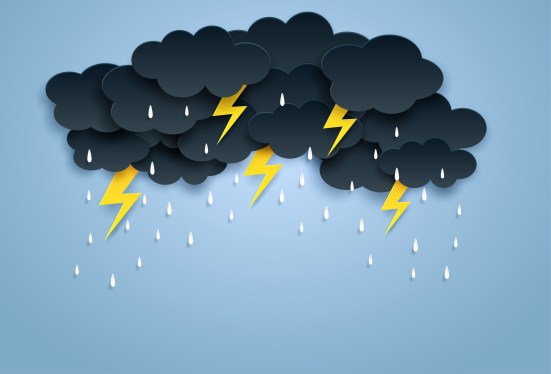Posted on December 7, 2024
In a significant development, Google has announced the introduction of an advanced AI model called GenCast, which is capable of outperforming the top weather forecasting system, ENS (European Centre for Medium-Range Weather Forecasts). This breakthrough was revealed by Google’s DeepMind team in a paper published in Nature.
GenCast: A Revolutionary Approach to Weather Forecasting
According to the research paper, GenCast comprises an ensemble of 50 or more predictions, each representing a possible weather trajectory. This complex probability distribution of future weather scenarios is a significant departure from traditional deterministic approaches, where a single, best estimate of future weather is provided.
In contrast, GenCast’s probabilistic approach allows for a more nuanced understanding of the uncertainties involved in weather forecasting. By incorporating multiple possible outcomes, GenCast provides a more comprehensive and accurate representation of potential weather scenarios.
Outperforming ENS: A 97.2% Accuracy Rate
The DeepMind team conducted an extensive evaluation of GenCast’s performance against ENS, using data from 2018 as the training set. The results were impressive, with GenCast outperforming ENS in 97.2% of cases for the year 2019.
This achievement is a testament to the power and potential of AI-driven approaches to complex problems like weather forecasting. By leveraging machine learning techniques, Google’s researchers have developed a model that not only surpasses existing benchmarks but also offers a new perspective on understanding the intricacies of weather patterns.
The Future of Weather Forecasting with GenCast
GenCast is part of Google’s suite of AI-based weather models, which are being integrated into various applications, including Google Search and Maps. This integration will enable users to access real-time and historical forecasts from GenCast, providing valuable insights for research, planning, and decision-making.
The release of GenCast marks a significant milestone in the development of advanced weather forecasting capabilities. As researchers continue to refine and improve this technology, we can expect even more accurate and reliable predictions, ultimately benefiting individuals, communities, and society as a whole.
The Impact of AI on Weather Forecasting
AI-driven approaches like GenCast have the potential to revolutionize various fields, including weather forecasting. By leveraging machine learning algorithms and large datasets, researchers can develop models that are capable of capturing complex patterns and relationships in data.
In the context of weather forecasting, AI-powered models like GenCast can provide:
- Improved accuracy: By incorporating multiple possible outcomes and probabilistic distributions, these models can offer more accurate predictions.
- Enhanced decision-making: With access to real-time and historical forecasts, users can make informed decisions about planning, resource allocation, and risk management.
- Increased efficiency: AI-driven models can automate many aspects of weather forecasting, reducing the workload for human analysts and enabling faster response times.
The Role of DeepMind in Advancing AI Research
DeepMind’s contributions to AI research are well-documented, with notable achievements in areas like game-playing and natural language processing. The introduction of GenCast represents another significant milestone in their efforts to develop and deploy advanced AI capabilities.
As a leading player in the field of AI research, DeepMind continues to push the boundaries of what is possible through machine learning and other techniques. Their work on GenCast serves as a testament to the power of collaboration between academia and industry, driving innovation and progress in the pursuit of scientific discovery.
Conclusion
The introduction of GenCast marks an exciting development in the field of weather forecasting, showcasing the potential of AI-driven approaches to tackle complex problems. By leveraging machine learning algorithms and large datasets, researchers can develop models that offer improved accuracy, enhanced decision-making capabilities, and increased efficiency.
As we move forward, it will be essential to continue exploring the applications and implications of GenCast and similar AI-powered models. With their ability to outperform traditional approaches and provide a more nuanced understanding of weather patterns, these tools hold significant promise for improving our ability to predict and prepare for various weather-related events.
Additional Resources
For those interested in learning more about GenCast and its applications, we recommend exploring the following resources:
- GenCast paper published in Nature
- DeepMind blog post on GenCast
- European Centre for Medium-Range Weather Forecasts (ECMWF) website
By staying informed about the latest developments in AI research and its applications, we can better appreciate the potential of technologies like GenCast to transform various fields and improve our understanding of complex phenomena.



